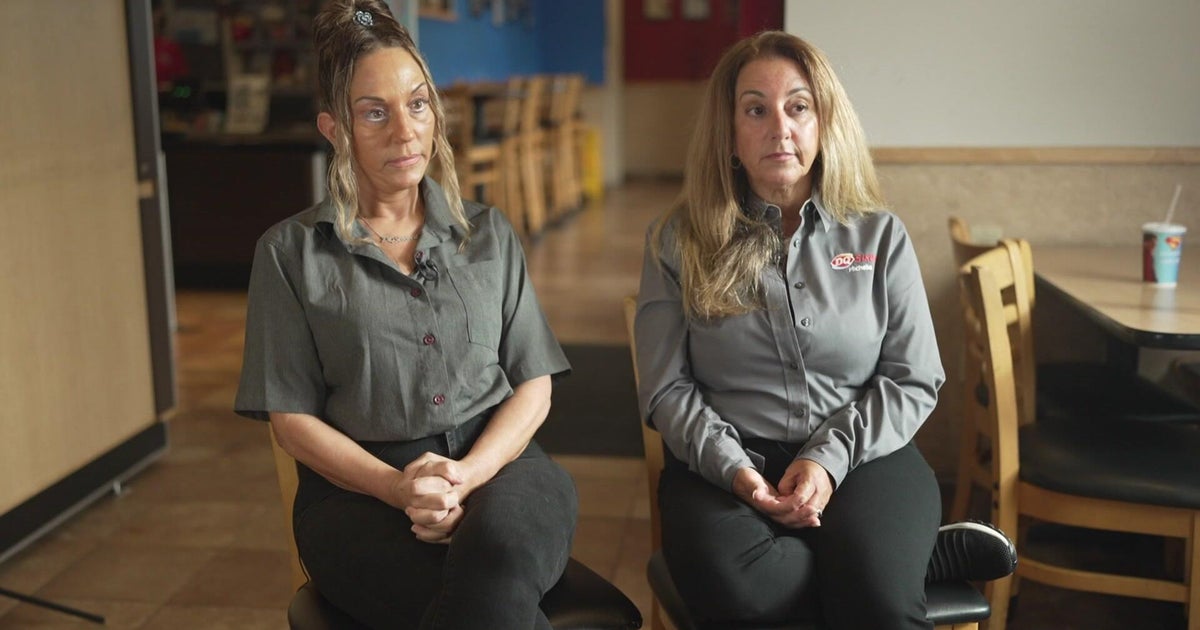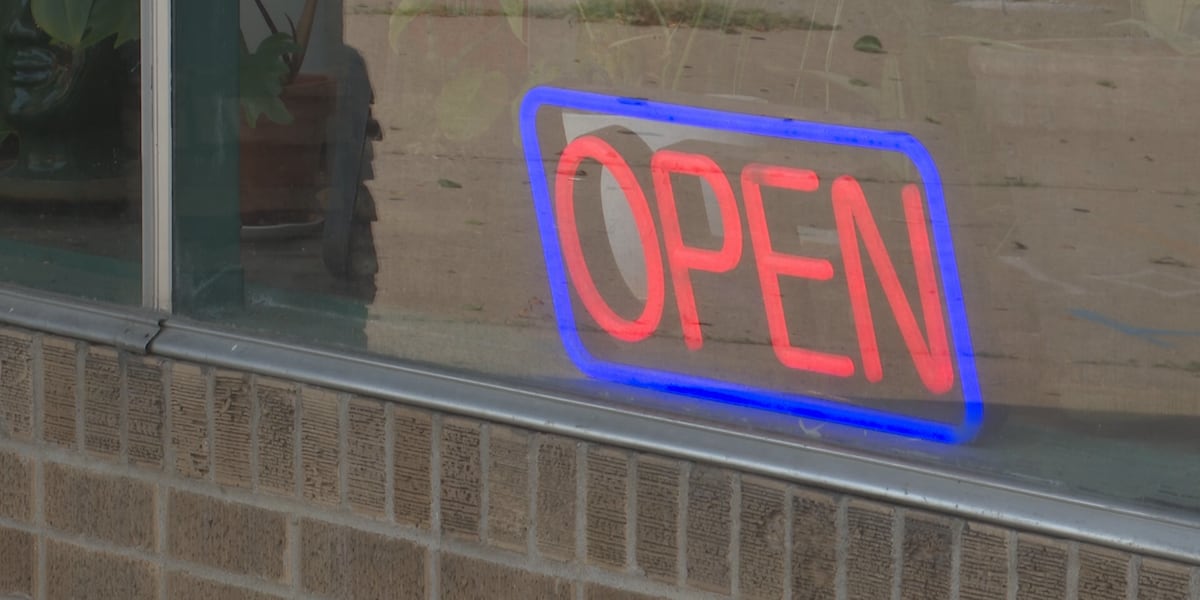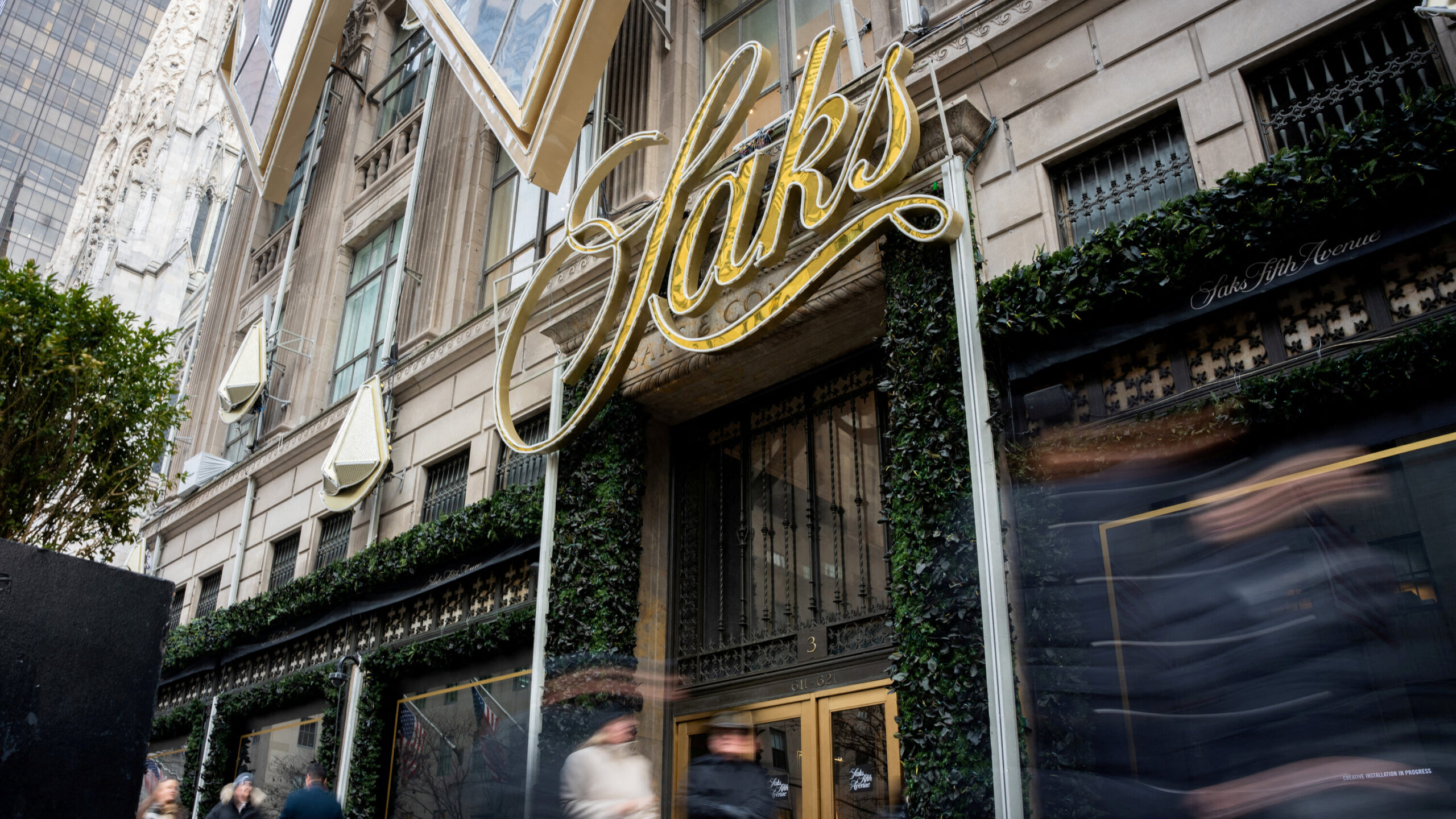Two Long Island sisters who own a fast food restaurant are navigating a legal nightmare they never saw coming.
They were sued for millions of dollars over a law they didn’t realize they were breaking.
“It’s more like a family than just a regular business”
Patty DeMint and Michelle Robey combined savings and loans to build a Dairy Queen franchise, which quickly became a Medford sweet spot, supporting community and offering jobs.
Robey said it was her sister’s dream.
“We are the DQ Sisters, and they are part of our family,” she said.
“Whether you are a felon, whether you are misplaced, whether you are 80 years old, whether you are 14 years old, everyone needs a place to call home as far as a job goes,” DeMint said.
“It’s kept me out of trouble,” store manager Gabriel Talavera said. “It’s more like a family than just a regular business.”
CBS News New York
So DeMint and Robey were blindsided by a blizzard of claims that they were breaking the law by paying employees every two weeks instead of weekly.
“It was ridiculous to us because we knew we paid every employee every dime that they were owed,” Robey said.
They were violating New York’s “Frequency of Pay” law, dating back to the Depression to prevent wage theft. The law requires “manual workers” be paid weekly, vaguely defining a manual worker as “a mechanic, workingman or laborer” who “spends more than 25% of working time engaged in” physical labor.
DeMint said she had been paid biweekly her whole career, including another fast food job at McDonald’s, so she thought it was normal for them to do the same for their employees. Not even their payroll company or an audit by the New York Department of Labor flagged a problem.
“No mention whatsoever of the fact that we were paying bi-weekly,” Robey said.
“It was so unbelievable”
A 2019 court ruling opened a floodgate of lawsuits.
“That was really the game changer here,” said Howard Wexler, a labor law expert and partner with Seyfarth Shaw LLP. “It found that if you pay your manual workers not weekly, you’re liable for essentially double the amount of what their earnings were.”
The DQ Sisters were slapped with a $6 million lawsuit.
“I laughed because I didn’t think it was a thing. We’ve always been very diligent in paying our people,” DeMint said.
“Everyone we had spoken to was like, ‘This can’t be right. This can’t be right. You must be reading it wrong. There’s something wrong.’ It was so unbelievable,” Robey said.
The suit wouldn’t just put them out of business, Robey said.
“It would put us homeless,” she said.
They were being sued by a laid-off employee who claimed she was owed overtime, but her case snowballed into a frequency-of-pay class action lawsuit against the DQ Sisters.
“She would say all the time, ‘I’m gonna get you, I’m gonna get you,’ and she did,” DeMint said.
The former worker named in the lawsuit and her attorneys declined to comment for this story.
The lawsuit accuses DeMint and Robey of “very serious labor violations against … employees including withholding paychecks without reason, refusing to pay overtime wages, [and] shifts in excess of 10 hours without legal compensation.”
The sisters deny those allegations, but there was no disputing the fact they had paid staff every other week.
“A ‘gotcha’ based on technical violation”
At the time, law firms were soliciting people who were paid bi-weekly, including through ads on Instagram and other social media platforms. Other larger retail businesses in New York also faced class action lawsuits for violations of the weekly paycheck law.
“It’s easily in the thousands in terms of lawsuits,” Wexler said. “It took what was a law that required you to pay your employees weekly into more of a ‘gotcha’ based on technical violation.”
The DQ Sisters set out to save themselves from ruin and change the law, speaking and writing to lawmakers about their situation.
State Sen. Dean Murray took action, proposing a change to limit the staggering damages law firms were seeking.
“They were pitching this as protecting the workers. There was nothing to protect them from. They were getting every penny they earned,” he said.
CBS News New York
The New York State Trial Lawyers Association opposed the change. The organization declined comment for this story.
Labor unions also fought against watering down the penalties.
“I mean, it’s horrible what happened to them, but then again, the law is the law. All employers should follow the law,” said Brian Schneck, with UAW Local 259. “We got to pay our bills. We got to pay the rent. We gotta feed our family.”
In May, Gov. Kathy Hochul closed the floodgates of lawsuits by changing the law so that businesses who pay every other week now only owe the interest on the late wages, but for the DQ Sisters, it’s a bittersweet fix that came too late.
“It doesn’t affect us,” DeMint said.
“It doesn’t help us,” Robey said.
“Every business in New York should be applauding them and thanking them”
Unable to wait for a fix, DeMint and Robey settled out of court for $450,000.
“That is the sad irony of this whole situation,” Murray said. “They are the heroes of New York businesses. I mean, every business in New York should be applauding them and thanking them.”
“I am happy for other small businesses who won’t have to go through this,” Robey said. “We still have to pay a half million dollars, and it’s an expensive lesson.”
Of the $450,000 settlement, $305,000 goes to lawyers and fees. The sisters’ former workers who were paid biweekly stand to collect less than $200 each.
“Everybody got pennies, but the lawyers, they’re the ones who made all the money,” DeMint said.
Robert Fonti, the head of the Suffolk Chambers of Commerce, calls the case a travesty. He is working with Robey to keep business owners better informed when laws change.
“It was a loophole. It was a small sentence in a law we didn’t know about it until it happened, and what they went through was unfortunate,” he said.
More laws may change due to their efforts. Murray is trying to hold payroll companies responsible for mistakes like this and get the labor department to clarify the definition of a “manual worker.”
The settlement ate up much of DeMint and Robey’s livelihoods. One of their employees started a GoFundMe page to help them recover.
Though they lost their own battle, they reversed a little known law, helping other business owners from facing the same struggle.
“It’s a victory because it won’t happen again because of what they did,” Fonti said.










